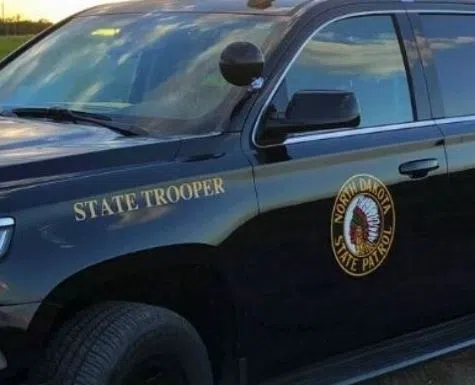
BY: MICHAEL ACHTERLING
BISMARCK, N.D. (North Dakota Monitor) – The North Dakota Highway Patrol retirement system is underfunded by $46.3 million and requires additional funding from the Legislature, according to an analysis presented to lawmakers.
The Legislature’s Employee Benefits Program Committee recently received recommendations about how to address funding concerns with the Highway Patrol pension plan, which is about 68% funded.
Bonnie Wurst, senior consultant for Gabriel, Roeder, Smith & Company Holdings, a Detroit-based actuarial and benefits consulting company, provided scenarios to lawmakers to get the pension plan to 100%.
A one-time cash infusion of $35 million to nearly $40 million would get the plan fully funded in 20 or 30 years, Wurst said.
Other options include increasing the amount lawmakers approve for each two-year budget cycle by $5 million each biennium for 30 years or nearly $7 million each biennium for 20 years, Wurst said.
Without additional funding, Wurst said, the Highway Patrol retirement system will be funded at a 60% rate in 2046 and continue decreasing to a 54% funded rate in 2053.
“If there are no changes and the contributions are not increased … the plan’s funded ratio is expected to decline and it is not expected to achieve a 100% funded ratio at any point in the future,” she said. “It’s really going down and we’ve seen that play out over the last five to 10 years.”
The legislative committee took no immediate action.
“I think there is definitely interest within the legislative body to look at opportunities to help fund the unfunded liability within the Highway Patrol, but, of course, that would take legislation,” Rebecca Fricke, executive director of the North Dakota Public Employee Retirement System, told the North Dakota Monitor.
The Highway Patrol retirement plan, which is managed by NDPERS, is separate from the main public employee pension plan that lawmakers voted last year to close to future hires. State employees covered in that plan will participate in a defined contribution, or 401(k)-style retirement plan, starting January 2025.
“The Highway Patrol plan was not part of that legislation and, as far as I know, that’s not something that’s being looked at,” Fricke said.
Capt. Derek Arndt, commander of the Highway Patrol’s Administrative Services Division, said the retirement benefit program is an important part of recruiting and retaining troopers.
“It is critical to us for our future and our sustainability,” Arndt said.
Col. Brandon Solberg, superintendent of the North Dakota Highway Patrol, told lawmakers that because law enforcement is a dangerous job, the disability and death benefits in their defined benefit plan, or pension plan, are important in a competitive workforce environment.
“A defined contribution plan doesn’t have that disability benefit, it doesn’t have that same death benefit that would carry over to a spouse,” he said.
Solberg also said members of the Highway Patrol retirement system do not pay into Social Security and lawmakers should take that into account when they are making changes to the contribution limits for employees and employers.
The Highway Patrol retirement program had 144 active participants as of last July, Wurst said. The plan also had 143 retirees and 59 former members at that time.
Meanwhile, legislative leaders have said additional investments will be needed for the main state employee retirement plan. The plan had an unfunded liability of about $1.9 billion, according to figures presented last legislative session. Critics say the liability was caused by the Legislature not taking action sooner.
Lawmakers in 2023 approved a one-time injection of $135 million into the main state pension plan and designated $65 million in oil tax revenue for the pension plan every two years.




Comments